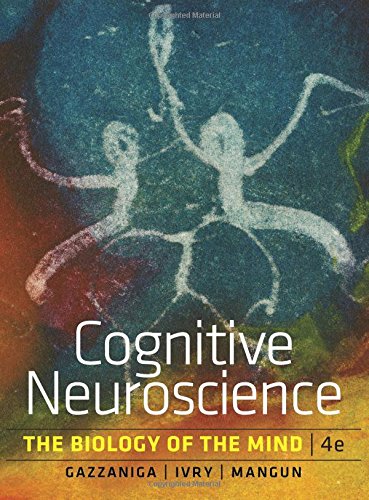Cognitive Neuroscience: The Biology of the Mind book
Par carpenter kathy le vendredi, août 14 2015, 21:42 - Lien permanent
Cognitive Neuroscience: The Biology of the Mind. G. R. Mangun, Michael S. Gazzaniga, Richard B. Ivry

Cognitive.Neuroscience.The.Biology.of.the.Mind.pdf
ISBN: 0393972194,9780393972191 | 185 pages | 5 Mb

Cognitive Neuroscience: The Biology of the Mind G. R. Mangun, Michael S. Gazzaniga, Richard B. Ivry
Publisher: W. W. Norton & Company
The second is that neuroscience has already told us lot, just not the sort of things we may think it has. Apparently so, and Provan indicates his stance on the matter by suggesting one of the central tenents of, yes, the quest of modern neuroscience—that cognition does have a biological basis—is akin to a fantasy. I often have trouble explaining to people what I am doing for my PhD. Deconstructing the most sensationalistic recent findings in Human Brain Imaging, Cognitive Neuroscience, and Psychopharmacology The first and foremost reason why we shouldn't simply disown neuroscience altogether is an obvious one: if we want to understand our minds, from which all of human nature springs, we must come to grips with the brain's biology. We have an inkling of the cognitive processes that beget consciousness, which is both a product and central feature of the brain; but philosophers and neuroscientists alike still have trouble defining, much less locating, the phenomenon and explaining the . I was basically interested in the ways that cognitive neuroscientists and psychologists had come to understand and do research on a thing called 'autism.' I wanted and humanists moved by the possibility of a felt, embodied layer of knowledge, deeply entangled with what we understand as a conscious awareness, and colleagues who remain sceptical of (what they see sometimes see as) older biological-essentialist rhetorics, now dressed in new theoretical clothing. It addresses the In his book, The Anatomy and Physiology of the Nervous System in General, and of the Brain in Particular, Gall claimed that a larger bump in one of these areas meant that that area of the brain was used more frequently by that person. Speakers: Greg Appelbaum (Center for Cognitive Neuroscience, Duke University) L. Sternberg, now in medical school, in a recent paper in the Journal of Cognitive Neuroscience. Cognitive neuroscience is an academic field concerned with the scientific study of biological substrates underlyingcognition, with a specific focus on the neural substrates of mental processes. This is the question posed by Professor of Biology, John Lisman and his former undergraduate student, Eliezer J. Without question, cognitive neuroscience - the study of the biological processes that underlie the way we think - has enjoyed a renaissance in the last 20 years and has an increasing media presence. Into Ageing programme, the Age-UK funded Disconnected Mind Project, the UK Medical Research Council, the Scottish Funding Council, UK Biotechnology and Biological Sciences Research Council, Engineering and Physical Sciences Research Council, Neuro researchers are world leaders in cellular and molecular neuroscience, brain imaging, cognitive neuroscience and the study and treatment of epilepsy, multiple sclerosis and neuromuscular disorders.